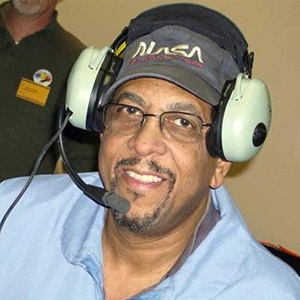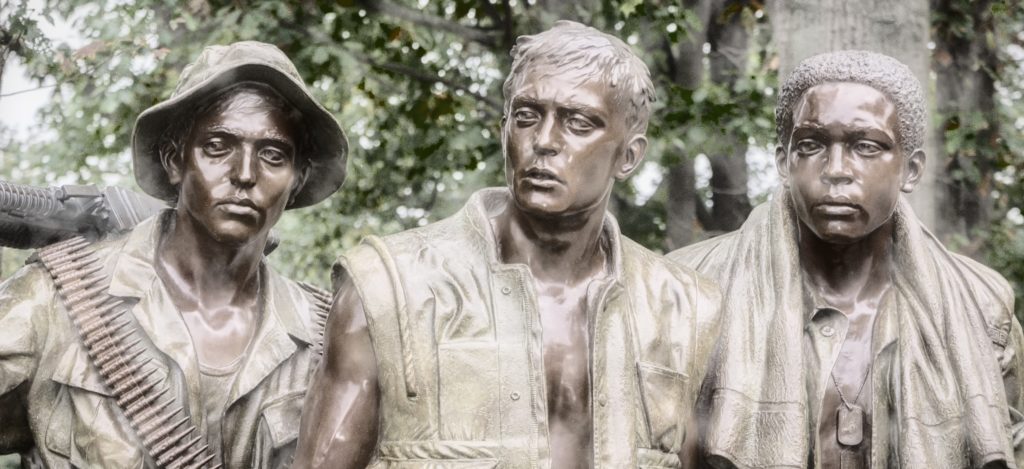Hi, my name is Paul McMickle. I served with a Special Forces team in Viet Nam. When we returned, ten of my twelve team members killed themselves. I almost joined them. Here is my story.
In 1965, I was drafted into the U.S. Army – just after completing my 2nd year of college. I had been the president of student government and editor of the school paper, as well as the principal anti-war organizer on my college campus. I was also a member of the American Friends Service Committee, a pacifist organization. I had volunteered in JFK’s Presidential Campaign and marched with Dr. King during the Civil Rights movement.

Near the completion of Basic Training, I volunteered for Special Forces duty to avoid being shipped immediately to Vietnam as part of an Infantry Company. Eventually, I was sent to Viet Nam and served 2 ½ tours with a team of extraordinary and courageous men. We didn’t see eye-to-eye politically, but they were dedicated and reliable under any circumstance –career soldiers.
Why did I serve more than the one required tour?
Dr. King was assassinated four days before I was to return to the States. When that happened, I vowed to stay in Vietnam until my term of service was complete. I was NEVER going to return to the United States. When I extended my tour of duty, so did the rest of my team. They said it was to look out for ME, as I was the “new kid” and they were already seasoned, multi-tour veterans. I believed it since they saved my life too many times to mention.
When my time was finally up, I discovered the county I planned to live in – Japan – had worse winters than Chicago – and I didn’t know the language – so I returned to Chicago.
I had a difficult time reintegrating into civilian life.
Only 48 hours elapsed between the time I left Vietnam and the time I landed in Chicago. Nightmares and cold sweats lasted for over a decade. Emergency fire and police sirens sent me diving for cover and looking for a bunker – the sound was identical to the ones that blasted when our base was under attack.
Then the suicides began. Each year after returning, when I’d get word of a reunion of our team, it would also include the name of one of my comrades who had died by suicide. It was always a shock. I couldn’t imagine what was going through their minds that they could do such a thing. I concluded it must have had something to do with their personal lives. I never connected it to their military service.
By the 7th year, when the 7th team member’s name was on the reunion notice as a death by suicide, I concluded that perhaps there was a connection to what we had experienced while in the military. By this time, I was floundering in my career. I had several failed relationships. I was drinking heavily, but no matter how much alcohol I consumed, it only dulled the pain temporarily.
By year 10, with the 10th of our 12-member team now dead by suicide, I stopped communication with the remaining survivor, because it was starting to look like I’d be number eleven. I surmised that if all those brave, courageous, and much stronger than me Special Forces soldiers couldn’t find a way to cope, then I didn’t stand a chance, and given how out of place I felt trying to fit back into regular life, suicide was now making sense.
Four packs of cigarettes and nearly a fifth of alcohol consumed daily no longer numbed the pain. One day, I found myself sitting in the window of my 52nd story apartment trying to decide in which direction to jump to minimize any damage to passers-by.
Thankfully, I climbed back in. Just before making my “final decision,” I recalled something I heard about a personal development seminar and thought: “maybe I’ll give it one more try… then, if THAT doesn’t work, I’m out of here!”
I did the seminar and it helped more than I could have anticipated. I discovered where I had “collapsed” the things that happened, both while in Vietnam and after, with all the stories and interpretations and meanings I had added to what happened. For example, what happened was, I participated in a war that I was opposed to. What I made that mean was that I was an unprincipled liar, a killer, and no good. I also thought I could NEVER be a “good person” again. When my friends died, I felt guilty, because I was still alive, and they weren’t, and (more meaning I added), they were much more of a contribution to the planet than I was – which then even further justified my own thoughts of suicide.
In the seminar, I also saw that I had a “choice” – not about what happened, but about how I was going to respond to what happened, along with the fact that my past didn’t have to dictate my future. I shed the thought: “I’ll never be OK again and I should just end it.” A bit unbelievable I know, but what I’d been seeking to resolve for over a decade occurred in a single seminar.
I’m now clear that “what happened” is: 10 of my team members died by suicide! And, it doesn’t mean that they were weak, or crazy, or that I too had to follow in their footsteps.
To honor them, and the huge contribution they were to me, I decided to live and dedicate my life to serving others, whether in my career pursuits or in community activities. Some of those pursuits include the following:
- Volunteering with the organization Landmark Education. The seminar was a life-saver for me 30 years ago.
- Volunteering in public school systems in Illinois, Iowa, Missouri, Wisconsin, New York, and the Cook County Jail.
- Adopting a teenage son (as a single parent) and raising him to adulthood.
- Supporting initiatives and laws to benefit the active-duty military, veterans, and their families.
- Working in political campaigns at all levels of government.
- Being elected twice to the Chicago Public Schools Local School Council.
- Consulting with and supporting The Alliance of Hope for Suicide Loss Survivors.
- Earning my private pilot’s license.
- And … I quit smoking – cold turkey!
In closing, while my relationship to those whose deaths I grieved wasn’t one of family in the traditional sense, our bond was profoundly close. We depended on each other to survive our time in combat. They were much more instrumental in saving MY life than me in theirs.
I know first-hand that no one can replace your lost loved ones. You will never stop missing and loving them. I also want you to know that in addition to grief, there is a future that awaits you that is unimaginable now. Survivors can heal and live a fulfilled life, despite the loss. And you can and will make a difference for others, both those you currently know, and those you’ve yet to meet.




